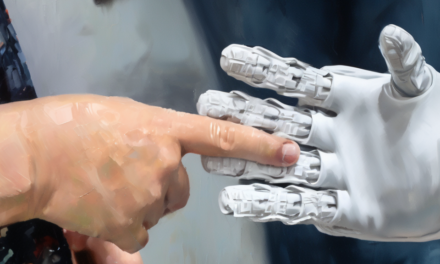Graduates are increasingly changing their career plans due to the rise of AI, with 11 percent already switching paths, according to new research from Prospects at Jisc. The 2025 Prospects Early Careers Survey, covering more than 4,000 students and graduates, highlights the shifting job landscape as AI reshapes industries.
The survey shows that 14 percent of respondents feel pessimistic about their career prospects due to job automation. Meanwhile, 43 percent of graduates expressed a desire to leave their current employers. This shift is driven by fears that AI will make certain roles obsolete, especially in fields such as coding, graphic design, legal, data science, film and art, where creative jobs are seen as particularly vulnerable.
Moli Hitchen, a graduate in Korean Language and Japanese at the University of Sheffield, shared their experience: “I wanted to pursue a career in translation. Due to the advancement in AI, however, the need for human translators is rapidly decreasing. I am now looking for other ways to use my language skills and am leaning towards something in consultancy or marketing.”
AI Opens New Career Paths in Emerging Sectors
Not all graduates view AI as a threat. Some respondents highlighted how AI has created opportunities in fields they had not previously considered. Laura Tinsley, a student of policing at Sheffield Hallam University, explained, “AI was highlighted as a turning point in the way crimes are articulated and devised. This has opened up many new jobs within the criminal justice system. I’m now looking at graduate roles in intelligence to combat the ever-growing crime AI can facilitate. I am also interested in postgraduate education to gain further understanding of cybercrime, which I had never considered prior.”
The Prospects Early Careers Survey also explored the factors influencing career choices and the tools used by graduates to secure roles. Nearly one in five respondents reported using generative AI tools such as ChatGPT and Microsoft Copilot for career advice, with 84 percent rating them as helpful.
Graduates are leveraging AI to streamline job applications, allowing them to apply for a higher number of roles. A quarter of respondents said they are applying for as many jobs as possible, with 27 percent submitting more than 50 applications. This trend reflects data from the Institute of Student Employers, which noted a 59 percent increase in the average number of applications per graduate job, now reaching 140.
AI tools are widely used in the application process, with 43 percent of graduates using them to edit CVs or cover letters, 35 percent for writing them from scratch, 29 percent for interview preparation and 26 percent for completing application forms. Use of AI in online tests and interviews remains lower, at 9 percent and 3 percent respectively.
AI Adoption in Job Applications Gains Momentum
Chris Rea, graduate careers expert at Prospects for Jisc, commented, “The rapid rise of AI raises concerns about its long-term impact, the jobs it might affect and the skills needed to compete in a labour market shaped by AI. These uncertainties can leave graduates feeling unsure about their future careers. Nevertheless, some are changing their plans for positive reasons, seeing new opportunities opening up.
“Through this uncertainty and transition, students and graduates need guidance from everyone who supports them at school, college, university and in the workplace. This includes helping students to understand how and when to use AI tools, spot when the information provided is outdated or incorrect, and combine them with other resources to ensure they get a fully rounded picture.”
Jodie Fodden, an MSc Environmental Management graduate from The Open University, said, “I was always reluctant to use AI in application processes as I felt strongly that I should be able to pass screening based on my own merits. But after spending 12 months and countless applications, not even getting past screening, I’m now using it. This year, I have applied for 50 jobs so far and have received three interviews since using AI. I use it to draft any statements I need to produce. So, I feed in all my background information and all the job information and any relevant information about the company to draft my statements. I then proof read and adjust it to correct any Americanisms and give it my personal touch. I also use AI to help me prepare for interviews.”
Fodden added, “I am applying for intermediate level positions relevant to my Master’s degree. I recently had an interview where I received positive feedback and only lost out to a candidate who had more practical experience than myself. On this occasion I used AI to help me draft my answers to potential questions and design the presentation I had to deliver.”






